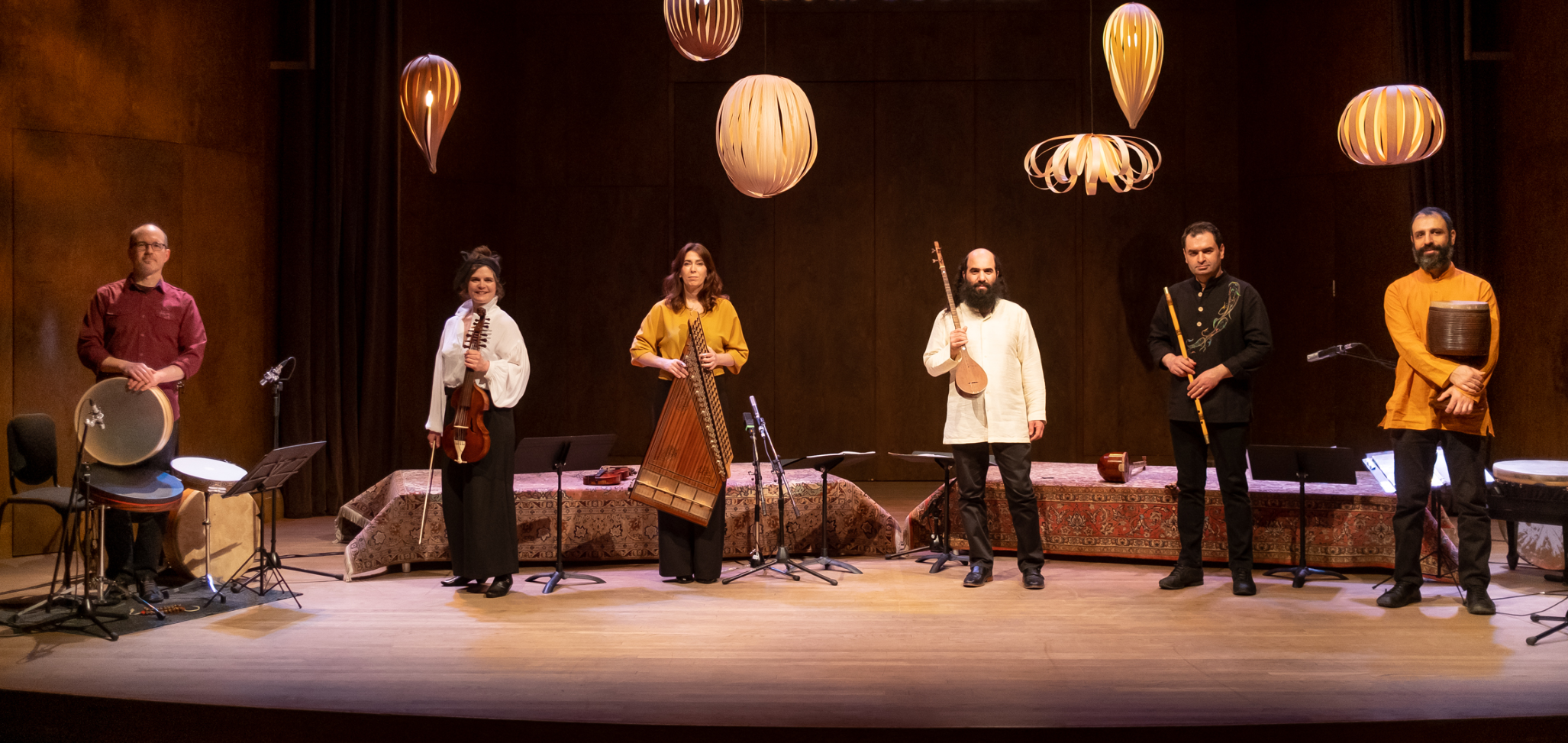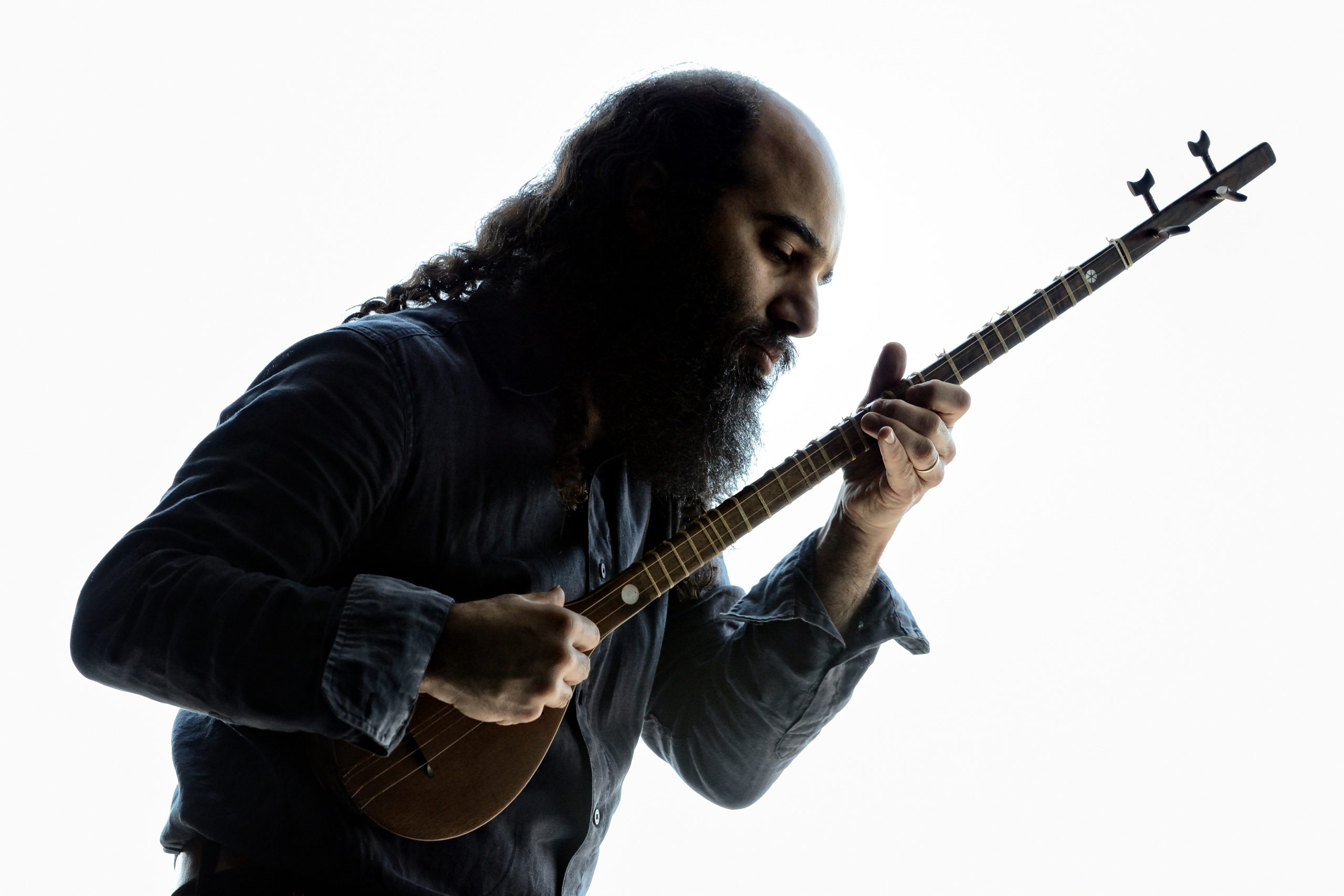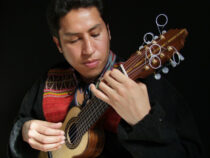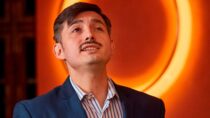Christ Church Cathedral
CONCERT CANCELLATION
Sadly, due to artist scheduling conflicts beyond our control, we have had to cancel the May 26th performance of Crossing the Andes. Ticket holders will be refunded. We apologise for the inconvenience. Thank you for your understanding.
Artists: Constantinople directed by Kiya Tabassian; Federico Tarazona, charango; Jonatan Alvarado, voice and guitar
This concert explores the juxtaposition of indigenous South American musical traditions with the ‘new’ repertoire introduced by the European colonizers in the 16th, 17th, and 18th centuries. The two main sources used to explore this repertoire are The Trujillo Codex from Peru and the Codice Luz y Norte published in Madrid but written in Mexico. The charango and pan flutes featured in this concert are played by virtuoso Federico Tarazona from Peru. The charango is a small guitar with five double strings that looks like a Spanish bandurria and is one of the most popular Andean musical instruments. Its resonator, which is rounded, is made from the shell of an armadillo. It has many names and is also known as tatú, atatou, quirquincho, querú, cabasu, piche, mulita, toche, mataca. The Argentinian singer Jonatan Alvarado, specialist of South American repertoire whose passion is to revive the tradition of self-accompanied singing, will join the ensemble to recreate this colourful journey.
This concert is generously supported by Fran Watters & Paul Devine.

Ensemble Constantinople
Founded in 1998 by its artistic director Kiya Tabassian, Constantinople is a musical ensemble inspired by the ancient city straddling the East and West. Since its founding, the ensemble promotes the creation of new works incorporating musical elements of diverse musical traditions around the world; drawing from medieval manuscripts to a contemporary aesthetic, passing from Mediterranean Europe to Eastern traditions and New World Baroque. Underpinned by a spirit of research and creation, Constantinople has joined forces with leading international artists such as: Marco Beasley, Suzie LeBlanc, the Mandinka griot Ablaye Cissoko, the Greek ensemble En Chordais, the Belgian duo Belem, The Klezmatics, sarangi virtuoso Dhruba Ghosh, and Iranian kamancheh master Kayhan Kalhor. They are regularly invited to perform in international festivals and prestigious concert halls including: the Salle Pleyel (Paris), the Berliner Philharmonie, the Fes Festival of World Sacred Music (Morocco), the Rencontres musicales de Conques (France), the Aga Khan Museum (Toronto), the Cervantino Festival (Mexico) and the Festival de Carthage (Tunisia). Constantinople has 19 albums to its credit. Over the past fifteen years, Constantinople has created nearly 50 works and travelled to more than 240 cities in 54 countries.

Kiya Tabassian, dir.
In 1990, at age 14, Kiya Tabassian emigrated with his family to Quebec from his native Iran, bringing with him some initial musical training in Persian music. Determined to become a musician and composer, he continued his education in Persian music, studying with Reza Gassemi and Kayhan Kalhor. At the same time, he studied composition at the Conservatoire de musique de Montréal with Gilles Tremblay. In 1998, he co-founded Constantinople with the idea of developing an ensemble for musical creation that draws from the heritage of the Middle Ages and the Renaissance, of Europe, and of the Mediterranean and the Middle East. Serving as its artistic director, Kiya has developed close to 40 programs with Constantinople. Numerous musical groups and institutions have called upon his talents as a composer, including the Orchestre symphonique de Montréal, the Nouvel Ensemble Moderne and the European Broadcasting Union. He has also composed music for documentary and feature films, including Jabaroot and Voices of the Unheard. Since the summer of 2017, he has held the post of Associate Artist at Rencontres musicales de Conques festival in France. In 2017 he co-founded the Centre des musiciens du monde in Montreal. Kiya also sits on the Board of Conseil des arts et des lettres du Québec.

Federico Tarazona, charango
Renowned for his exciting interpretation, extraordinary technique and musical expression, Federico Tarazona is considered one of the world’s finest Andean charango virtuosos, and one of the most important contemporary Peruvian composers working today.
He began his musical studies at the age of eight on the violin and piano with his father and sister respectively. Later, he pursued classical guitar with Ricardo Barreda and composition with Walter Casas and Edgar Valcarcel at the Lima Conservatory in Peru. He subsequently studied composition with Genady Belov at the Saint-Petersburg Conservatory in Russia, guitar with Sonja Prunnbauer under a KAAD scholarship at the Freiburg Musikhochschule in Germany, electro-acoustic music composition at the Bordeaux Conservatory in France, and a Masters Degree in composition at the Laval University in Québec City, Canada.
Equally at home in both classical and folkloric musical genres, Mr. Tarazona is an authority on traditional Peruvian charango styles and traditions. He has adapted techniques from his classical guitar studies and applied them to his “Hatun” 8 strings charango, allowing him to perform Latin-American and European works written for or transcribed from the vihuela, lute, guitar and violin.
Mr. Tarazona has been the recipient of numerous honors and awards for his contribution to Classical Music and to Peruvian Culture. In 2008, he was granted an honorary medal from the Peruvian Education Ministry for his distinguished work in the promotion and dissemination of art and culture. In 2011, he won the “Guitar Composition Prize Productions d’Oz” in Quebec, Canada. In 2013, he received the “International Composition Prize Casa de las Americas” in Havana, Cuba and an Honorable Mention for the “Ibero-American Composition Prize for Symphonic Orchestra, Ibermusicas”, in Buenos Aires, Argentina, in 2014.

Jonatan Alvarado, voice, guitar
Jonatan Alvarado is a singer and player of (very) old songs, be them contained by medieval and renaissance manuscripts scattered all over the world, or found in the oral traditions of Europe and the Americas. He took his first musical steps in the guitar class at the conservatory and in the municipal choirs of Mercedes, Buenos Aires, conducted by Amalia Guaragna. He then studied Orchestral Conducting, Choral Conducting and Composition at the National University of La Plata. In 2011 he moved to the Netherlands, where he graduated with honors in singing and lute at the Amsterdam Conservatory, in the classes of Xenia Meijer and Fred Jacobs respectively. His specialization in medieval and renaissance repertoire was developed under the guidance of Dr. Rebecca Stewart.
He is musical director and co-founder – together with the Portuguese Nuno Atalaia – of the ensemble Seconda Pratica, which specializes in the performance of Ibero-American music from the 15th to the 17th centuries. He is also a member of Da Tempera Velha, Sollazo Ensemble and Concerto di Margheritta. He collaborates regularly with lutenist Ariel Abramovich and guitarists Jessica Denys and Samuel Diz, as well as with the ensembles Armonía Concertada and ClubMédieval.
His first solo CD, “Pajarillos Fugitivos” (Ayros 2018) was nominated for the International Classical Music Awards in the category of Best Early Music Vocal Album. He has performed in the most important festivals and stages of his speciality, from Boston to Utrecht, from the Bimhuis in Amsterdam and the Konzerthaus in Vienna to the Minatomirai Hall in Yokohama.
Jonatan Alvarado’s eclectic musical restlessness extends his artistic activity to completely disparate projects, always under the common denominator of working from historically informed sources and the use of historical instruments, as in the recovery of the unpublished songbooks of the Spanish Republican exile, the interpretation of tango and Argentine song from the early 20th century in his second solo album “Voces de Bronce” (TRPTK, 2023), or the recovery of the medieval musical archive of the Cathedral of Tui.


